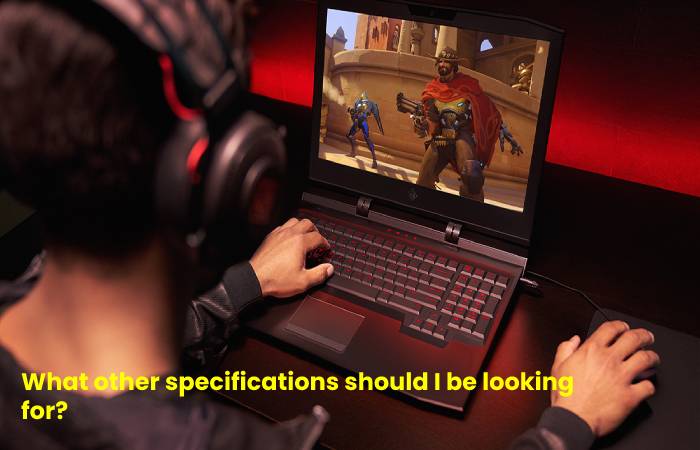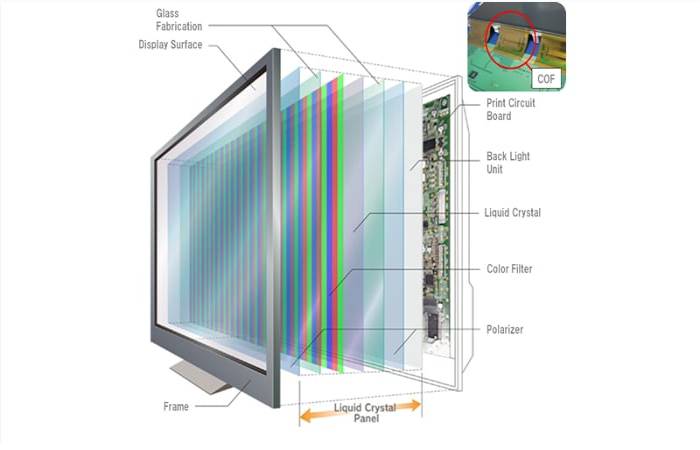A Laptop For Gaming
Choosing a gaming laptop can seem like an overwhelming task. There are different options; it can be hard to know which one is right for you.
When buying a gaming laptop without a strategy, it’s easy to be convinced that you have a lot of money to spend, although you actually might not.
See On Your Budget
The first step when choosing a laptop is to set a budget. If you don’t do this before you start looking at all of the available options, you’ll easily be convinced that you have to spend an absolute fortune!
Decide what you can reasonably afford to spend without breaking the bank, and don’t be tempted to go back on it. It is quite possible to get a very high-quality gaming laptop for less than $ 1000, which will still give you a fantastic experience and allow you to get the most out of your favorite games.
Decide Whether You Want The Resolution Or The Speed
Of course, you would have a high-speed display with excellent resolution in an ideal world. The problem present is that some of the higher resolution displays are so detailed that your games will run a little slower.
For example, the fastest displays (up to 30 Hz) can currently only support a resolution of 1920 x 1080. So, if you go for a 4k display, you would find that it degrades its performance.
Decide whether you care about good performance or sound quality images, and use them as a guide to help you decide your screen resolution.
What other specifications should I be looking for?

GPU
While the GPU is important, you also need to look for a good processor, enough RAM, and plenty of storage space.
You can too find laptops with desktop processors. Dependent on your budget, you can get a potent Core i7 processor or even one that you can overclock, like the Intel Core i9-9980HK. Most games, however, benefit more from a high-quality GPU than a CPU so that you can get by with a Core i5 processor.
If you’re seeing something older than the newer 10th Gen Intel Core (model numbers start with 10) or with less power, save a little. Processors are generally not scalable, so make this choice only once. Intel unveiled its 11th Gen Intel Core H35 at CES 2021, while a 45W part will arrive later in the year.
RAM:
RAM. Games can be RAM hungry, and we recommend 8GB for even average productivity tasks. If you can, go for 16GB on a gaming PC. A laptop with a GTX 1650 or 1660 Ti regularly comes in at 8GB. Once you hit a GTX 2060 or better, some come with 16GB. If we can’t get our laptop with 16GB of RAM now, you should consider upgrading shortly. Memory is expandable in many gaming laptops, so this is an area to view later when you’re comfortable with a screwdriver.
Storage
Hard drive or SSD? Why not the two of them? Some budget gaming laptops only come with a hard drive (usually 1TB), but most gaming laptops also come with a small SSD that doubles as a boot drive. It is not uncommon for a 128GB SSD and a 1TB hard drive to work simultaneously. Getting a larger SSD can reduce load times, but it will also cost you a bit more money. Make sure you get a faster hard drive at 7200 RPM than a hard drive at 5400 RPM.
Like RAM, memory in gaming laptops can often be upgraded. So if you need additional storage space, you can add a 2TB or larger hard drive.
What Should I Pay Attention To With A Display?

Performance is often overlooked, but it is essential. When you don’t connect the laptop to the monitor, you can see all your games on the built-in screen.
Size:
Most gaming laptops have 15- or 17-inch screens, but some heavier systems have 18-inch panels and some 14-inch systems. Which size you prefer depends on your personal preference. However, keep in mind that the larger the screen, the bigger and heavier the laptop will become
Resolution:
Never get less than a 1920 x 1080 screen. Finding one with a lower resolution is rare, but when you do, you’re running. 4K (3840 x 2160) displays are an option on some gaming laptops, but you may need to lower some settings even further, especially if you enable ray tracing
Avoid touch screens:
While this isn’t inherently bad, touchscreens are useless on gaming laptops (despite some 2-in-1 models). They destroy the battery and can make the screen too bright.
When you get an entry-level gaming keyboard, you get LED-backlit chiclet keys. There is so much more to consider:
Get a Good Keyboard
Key course:
You can press any key that far. In general, we prefer keys with a keystroke greater than 1.5 millimeters, and if you hit 2 mm, that’s even better. It may prevent you from “driving” or bumping into the keyboard frame. If you can get your hands on some costly laptops, you can even find mechanical keys.
Operation:
It is the force you must exert on a key to press it. We generally like it between 65 and 70 grams, which is enough to provide resistance without being soft.
Macro keys:
Macro keys are more challenging to find on gaming laptops than on desktop keyboards, but not impossible. With a good set of programmable macro keys, you can efficiently perform the most common tasks in games. The laptop manufacturer usually has their software for this.
Anti-Ghosting And N-Key Rollover:
These two features will help you get your best performance in games. Anti-ghosting means that all will be recorded if you press multiple keys for combos or perform various actions. In addition, n-key reversal implies that each key is independent of the others and registers regardless of the other keys pressed.
Backlight:
While budget gaming laptops have backlighting, it’s just red or white. The top keyboards have RGB backlighting. Some fix it by zone (or section of the keyboard), while others permit key by necessary customization. Some even allow you to modify the lighting depending on the game.
What About The Battery Life?
The short answer is, don’t rely on your gaming laptop to be super portable.
Other tasks, but never as long as subnotebooks without separate GPUs. It would help keep your laptop connected to get the most out of your GPU whenever you use your computer to play games. If not, you’re in luck if your computer can last an hour of gaming. Our testing experience has shown that most gaming laptops only last a few hours on one charge. If you need something that can last 8 hours while you work, it’s not a gaming laptop.
Some will last a long time, but often it comes at the expense of the display, and you don’t want to play all of your games on a dark, dark, or inaccurate screen.
Final Word
When you buy a gaming laptop, buy one that will last a few years. If you can afford it, get yourself a mid-to-high-end GPU, although a better card will perform better. This choice is more important than RAM and CPU, although you should be careful with that as well. Memory is most likely expandable, but more is well as games take up a lot of space. Select if you choose high resolutions or faster displays and think about which software will help you, but find that you won’t get much battery life.
Related posts
Featured Posts
What Is Blockchain? How to Work, Advantage, Disadvantages
What Is Blockchain? Blockchain, sometimes referred to as distributed ledger technology (DLT), makes the history of any digital asset immutable…
What Is Digital Signatures? How To Work?
Digital signatures are enabled by proven public critical infrastructure (PKI) technology and are widely recognized as good practice for digital…



